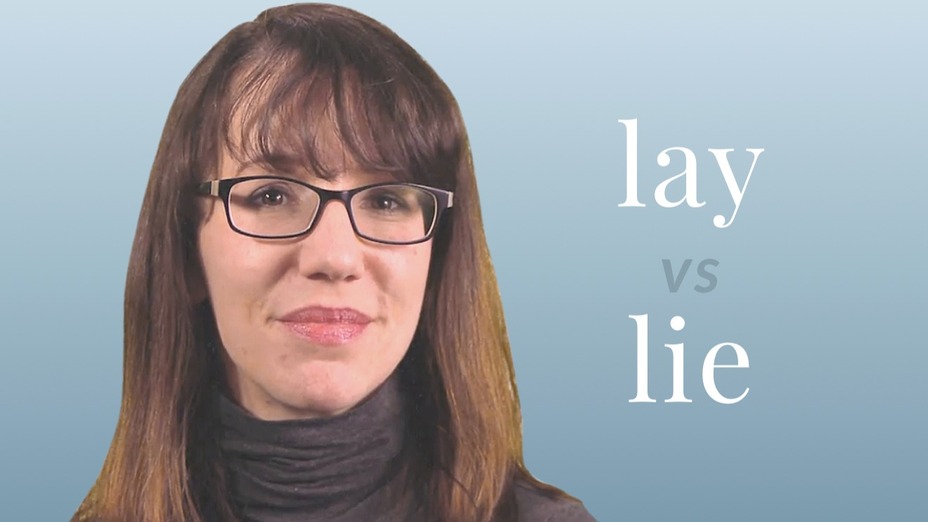1
b
: to assume a horizontal position
—often used with down
c
archaic
: to reside temporarily : stay for the night : lodge
d
: to have sexual intercourse
—used with with
e
: to remain inactive (as in concealment)
lie in wait
2
: to be in a helpless or defenseless state
the town lay at the mercy of the invaders
3
of an inanimate thing
: to be or remain in a flat or horizontal position upon a broad support
books lying on the table
4
: to have direction : extend
the route lay to the west
5
a
: to occupy a certain relative place or position
hills lie behind us
b
: to have a place in relation to something else
the real reason lies deeper
c
: to have an effect through mere presence, weight, or relative position
remorse lay heavily on him
d
: to be sustainable or admissible
6
: to remain at anchor or becalmed
7
8
: remain
especially
: to remain unused, unsought, or uncared for
see also:
Lay is often used where lie is considered standard, as in "I'm going to lay down for a quick nap." The use, which dates to the 14th century, troubled no one until the 18th, but since then, people who care about such things have tried to teach the rest of us that a person lies, not lays, down. Lay in the related use means "to place (someone or something) down gently in a flat position." It requires an object; there must be a thing or person being placed.
Lay it down.
It's time to lay the baby down for a nap.
Lie, on the other hand, does not require an object; instead, the one lying down is already in position or is moving or going to move to such a position on their own.
The cat lies there every morning.
You can lie down on the sofa.
The tenses of the verbs complicate things further. Lay becomes laid and laying
She laid the baby in his crib for a nap.
They have laid it all out for you.
I'm laying out the fabric.
and lie becomes lay, lain, and lying:
The baby lay asleep in his crib.
He has lain there since noon.
A note was lying on the table when I came home.
1
chiefly British
: lay sense 6
2
: the position or situation in which something lies (see lie entry 1)
a golf ball in a difficult lie
4
British
: an act or instance of lying or resting
lied; lying
ˈlī-iŋ 

1
: to make an untrue statement with intent to deceive
She was lying when she said she didn't break the vase.
He lied about his past experience.
2
: to create a false or misleading impression
Statistics sometimes lie.
The mirror never lies.
: to bring about by telling lies
He lied his way out of trouble.
1
a
: an assertion of something known or believed by the speaker or writer to be untrue with intent to deceive
He told a lie to avoid punishment.
b
: an untrue or inaccurate statement that may or may not be believed true by the speaker or writer
the lies we tell ourselves to feel better
historical records containing numerous lies
2
: something that misleads or deceives
His show of remorse was a lie.
3
: a charge of lying (see lie entry 3)
Love words? Need even more definitions?
Merriam-Webster unabridged











